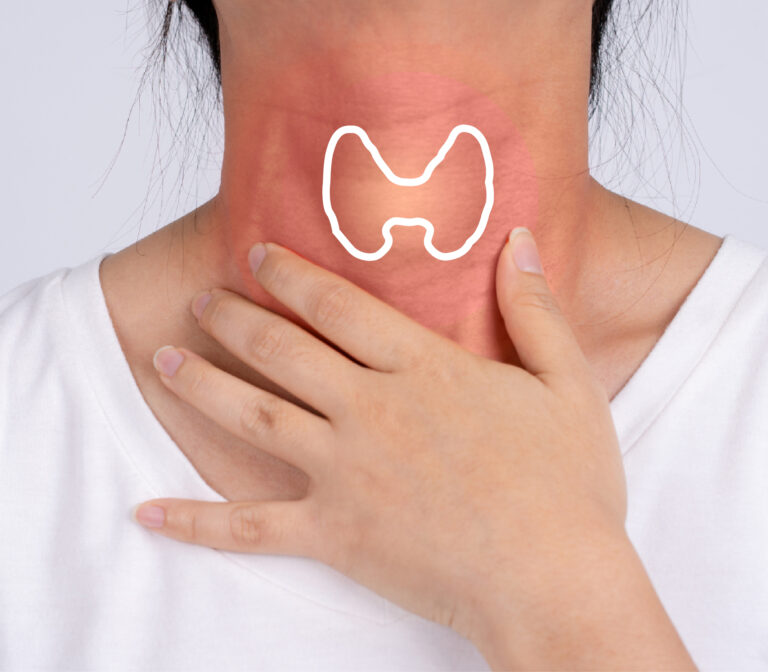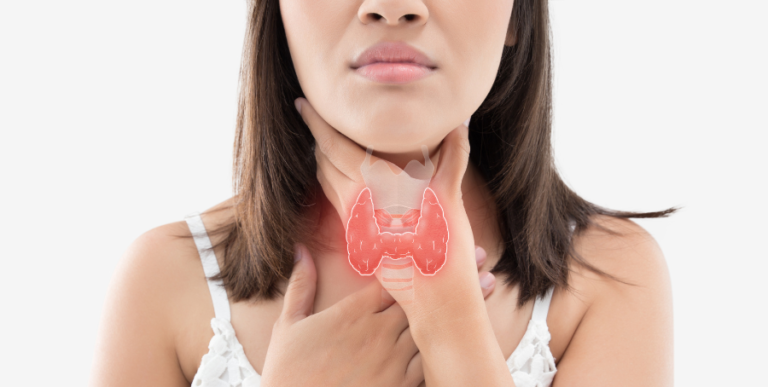If you have Crohn’s disease, you already know how tough it can be on your digestive system. This chronic condition causes inflammation in the intestines, leading to symptoms like abdominal pain, diarrhoea, and fatigue. But did you know that Crohn’s disease also increase your risk of developing colon cancer?
Chronic inflammation weakens the gut, making it more vulnerable to cancerous agents. But don’t panic—there are ways to reduce the risk! In this article, we’ll break down the connection between Crohn’s disease and colon cancer, why it happens, and, most importantly, what you can do to protect your gut health.
Table of Contents
ToggleWhat Is Crohn’s Disease?
Crohn’s disease is an inflammatory bowel disease (IBD) caused by an overactive immune response that mistakenly attacks healthy intestinal cells. This immune overactivation leads to persistent inflammation anywhere in the gastrointestinal tract, most commonly in the small intestine and colon. Overtime, this disrupts digestive function, leading to a range of symptoms including:
- Abdominal pain
- Diarrhoea
- Loss of appetite
- Weight loss and fatigue (from malabsorption of nutrients)
- Blood in stool (rectal bleeding)
- Fever (from immunoactivation)
- Mouth ulcers
In more serious cases, Crohn’s Disease can lead to:
- Fissures: small tears in the tissues lining the anus
- Abscess: Pockets of pus within the abdomen or anal area
- Kidney stones: Inflamed small intestines prevent the body from absorbing fats properly. These unabsorbed fats can bind to calcium, forming salts that eventually form kidney stones.
- Rashes and eye inflammation: Overactivation of immune system can cause inflammation in other parts of the body as well.
Does Crohn’s Disease Increase Your Colon Cancer Risk?
People with Crohn’s Disease have a higher risk of developing colon cancer. Chronic inflammation in the colon releases reactive oxygen species, an agent which can break and damage DNA overtime. As cells die during inflammation, our body will produce more cells to replace them. During this process, DNA replication occurs more frequently, increasing the risk of developing mutations that contributes to cancer development. For example, mutations known as oncogenes can stimulate an abnormal cell proliferation, also known as dysplasia. Overtime, these excess cells form a mass that is known as a tumour.
While statistics vary, many studies have confirmed that there is a higher risk of colorectal cancer among IBD patients than the general population. In fact, the incidence rates of colon cancer increase the longer one has Crohn’s Disease:
- 4.6% at 20 years,
- a 8.3% at 30 years.
Additionally, patients with Crohn’s Disease are often diagnosed with colorectal cancer at a younger age of around 55 compared to an average of 65 for those without the condition. Generally, colorectal cancer is more malignant among younger patients, highlighting the need for early detection and treatment.
Risk Factors for Colon Cancer in Crohn’s Disease Patients
While the exact cause of Crohn’s Disease is still unknown, a combination of genetic and environmental factors is known to increase the risk:
- Age: The older one gets, cells are more prone to DNA damage, which may accumulate overtime to exert tumourigenic effect.
- Family history: 20% of IBD patients are blood-related. Inherited gene mutations can increase one’s risk to Crohn’s Disease.
- Smoking: Contains carcinogens that increases risk of DNA mutations.
- Duration of inflammation: The longer the inflammation, the higher the risk of cell death and DNA damage
Symptoms of colon cancer can overlap with those of Crohn’s disease, making it a challenge to distinguish between the two. Generally, the longer the symptoms persist, the greater the risk of cancer growth. Key signs to watch for include:
- Changes in bowel habits, such as persistent diarrhoea or constipation
- Blood in the stool
- Unexplained weight loss
- Fatigue
- Abdominal pain or cramping
The Importance of Regular Colon Cancer Screening
As people with Crohn’s disease have a higher risk of colon cancer, getting regular colon screening is crucial. Various screening options are available to assess gut health and detect potential issues early:
Physical examination
The doctor will first feel your abdomen for any swelling and pain upon pressure. To examine problems in the rectum and anus, they may insert a gloved, lubricated finger into the anus to check for lumps or swelling. If you feel uncomfortable, let your doctor know. However, this process should not be painful.
CT Scan (Computed Tomography)
A CT scan is an advanced imaging technique that uses X-rays to create detailed cross-sectional images of the body. It provides a more precise and comprehensive view than a standard X-ray, allowing doctors to detect abnormalities such as tumours. The procedure is quick and non-invasive.
MRI (Magnetic Resonance Imaging)
MRI scans utilize powerful magnetic fields and radio waves to generate detailed images of organs and tissues. Unlike CT scans, MRIs do not use radiation, making them a safer option for certain patients e.g. pregnant women.
Colonoscopy
A colonoscopy is a procedure used to examine the inner lining of the colon and rectum. A thin, flexible tube with a camera (colonoscope) is inserted through the rectum, allowing physicians to examine any abnormalities like inflammation, ulcers, polyps, or tumours. If any of these are found, tissue samples will be taken for a biopsy. Colonoscopy is a crucial screening tool for early detection of colorectal cancer and other digestive disorders.
To clean the bowel, you may be required to take a laxative before the examination. Similarly, solid foods are not allowed the day before the exam. You will be sedated during the process; do not let the worry of pain or discomfort stop you from getting a screening. Air and water may be injected to clean and expand the colon for better visualisation. Hence, you may feel bloated for a few hours afterwards.
Upper Endoscopy
Similar to colonoscopy, an upper endoscopy also uses an endoscope, though it is inserted through the mouth instead. This focuses on the upper intestinal tract such as the esophagus, stomach, and upper small intestine (duodenum). This is commonly used if patients experience acid reflux, gastritis, and gastrointestinal bleeding.
Reducing Colon Cancer Risk in Crohn’s Disease
Individuals with Crohn’s disease face an increased risk of colon cancer, but proactive measures can help reduce this risk:
- Diet: A well-balanced diet rich in fiber, lean proteins, and anti-inflammatory foods, can support digestive health. Keep processed foods and excessive red meat to a minimum to further lower the risks.
- Exercise: Get a minimum of 20 minutes of movement each day to keep the blood flow throughout the digestive organs. For most office workers, make sure to get up and stretch every hour or so to minimise pressure on the internal organs.
- Regular screening: Colorectal screening is recommended once every 10 years. Depending on your history of colorectal cancer or polyps, your doctor may recommend more regular screenings ranging from once every 1 to 7 years.
Generally, colonoscopy screening should begin at 50 years old for individuals without any risk factors, or earlier for those with risk factors.
Conclusion
Crohn’s disease increases the risk of colon cancer, but with early detection and proactive management, complications can be prevented. By reducing inflammation, maintaining a healthy diet, and going for regular colon screenings, you can play an active role in lowering the risk of developing colon cancer. If you have Crohn’s disease, speak with your doctor about a personalized screening plan to ensure early detection and timely intervention. Don’t wait—schedule your colon cancer screening today to take control of your health today!
Safeguard Your Health Today
At Centre for Screening and Surgery, we prioritise delivering quality and comfortable early cancer screening and treatment using minimally invasive procedures. If you are concerned about your gut health and are looking for a colorectal screening, call us to book an appointment today!





